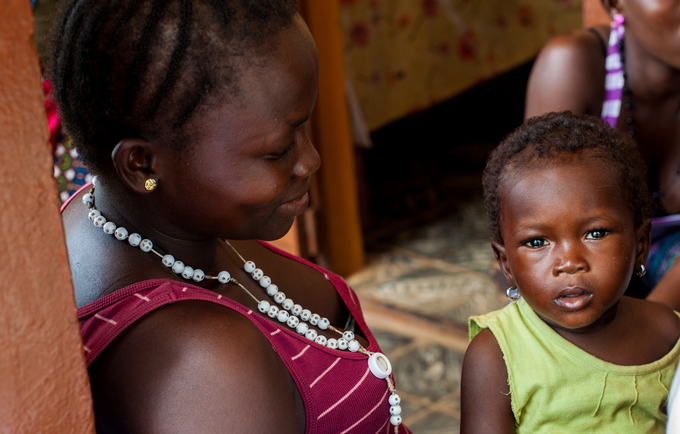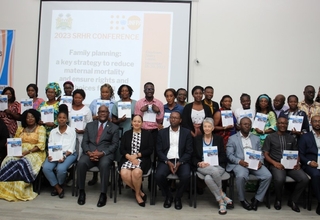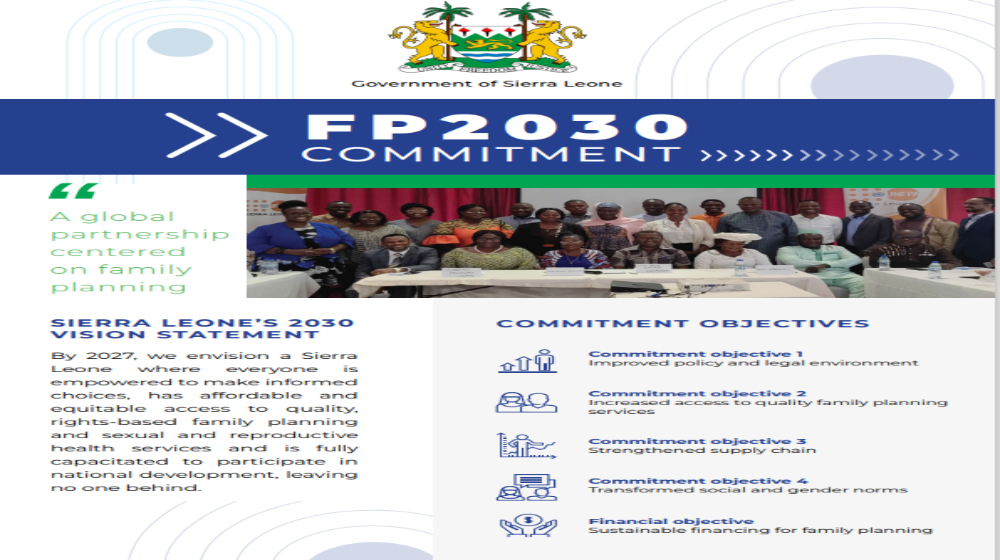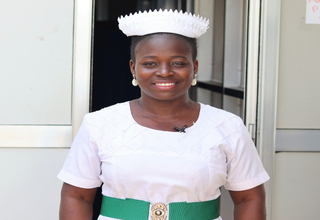FREETOWN, Sierra Leone, 4 July 2017 – Investing in family planning was the main theme that ran throughout the satellite event held today in the run up to World Population Day, which is celebrated on 11 July every year. The celebratory event organised by the United Nations Population Fund (UNFPA), Ministry of Finance and Economic Development, and the Ministry of Health and Sanitation, highlighted that investing in family planning is investing in the health and rights of women and couples worldwide.
Speaking on the 2017 theme for World Population Day, UNFPA Country Representative, Dr. Kim E. Dickson stated, “This year’s theme: “Family Planning: Empowering people, Developing nations” is a key area of our work at UNFPA. This is because family planning saves women’s lives. It’s good for women, men and children.” She added, “With family planning, women can have children by choice and not by chance. They can have the number of children they can adequately care for.
This year, World Population Day coincides with the London Family Planning Summit, which is the second meeting of donors and stakeholders that make up the Family Planning 2020 initiative. The aim of the FP2020 initiative is to expand access to voluntary family planning to an additional 120 million women and girls in 69 of the world’s poorest countries by 2020. Family planning is regarded as a powerful tool to combatting poverty, however universal access to family planning is not yet a reality particularly among the world’s poorest countries.
Modern contraceptive use has nearly doubled worldwide from 36 per cent in 1970 to 64 per cent in 2016. In Sierra Leone, the contraceptive prevalence rate is relatively low at 16 per cent, but this a marked improvement since 2008 when the rate was only 8 per cent. For women of reproductive age, the unmet need for contraceptives is 25 per cent. Women may have an unmet need for family planning for a variety of reasons: lack of knowledge about the risk of becoming pregnant; fear of side effects of contraceptives; perceptions that their husbands, other family members, or their religion opposes family planning; or lack of access to family planning services. Many of these barriers could be overcome through better information and counseling for both women and men.
Delivering her keynote address at the event, Deputy Minister of Health and Sanitation, Madina Rahman said, “Acknowledging the importance of family planning to the health and well-being of our people, and the overall socio-economic development of the country, this Government is prioritising the provision of quality family planning services in the country. In this regard, we presently have over 1300 functioning family planning clinics in all districts of the country providing quality family planning services on a voluntary basis.”
Recent research indicates that family planning can prevent many more deaths. Women who choose family planning are healthier and face lower risk of maternal death. Children born to women who space their pregnancies tend to be healthier and face reduced risk of death in their first five years.
According to the 2013 Sierra Leone Demographic and Health Survey, the maternal mortality ratio in Sierra Leone is estimated at 1,165 deaths per 100,000 live births, whilst the infant mortality rate is 92/1,000 live births. The total fertility rate is estimated at 4.9 births per woman and there is a high prevalence of teenage pregnancies estimated at 28 per cent. Access to sexual reproductive health services for adolescents is significantly low. More than 86 per cent of girls aged 15-19 have never used contraceptives, and 30 per cent of adolescent girls in Sierra Leone are already pregnant before their 19th birthday. Nearly 31 per cent of this age group in Sierra Leone have an unmet need for family planning.
United Nations Resident Coordinator, Mr. Sunil Saigal, remarked at the event, “For a country such as Sierra Leone, which has emerged from the twin shocks of the Ebola outbreak and the collapse of commodity prices, and where recovery efforts have focused on building resilience in the country’s institutions and – equally important – in its communities, family planning can play a significant positive role in building such resilience.” He added, “With better access to health and family planning services, women as primary care givers, will be less susceptible to future shocks. Healthy women means healthy communities.”
It is considered, that women with choices and greater reproductive health are better empowered to seek and keep better jobs and contribute more to their families, nations and global prosperity. Their families are better off financially and their children receive better education, helping trigger a cycle of prosperity that carries well into future generations. This produces demographic dividends and enhances national prosperity.
Achieving the world’s Sustainable Development Goals by 2030, will depend significantly on how well the sexual and reproductive health and rights of women and young people are fulfilled. Catering to their unmet need for family planning is among the most cost-effective investments overall.
*****
UNFPA, the United Nations Population Fund, delivers a world where every pregnancy is wanted, every childbirth is safe and every young person’s potential is fulfilled.
For more information, please contact:
Ms. Angelique Reid, Communications Specialist
UNFPA Sierra Leone
M: 078 340044 E: areid@unfpa.org




